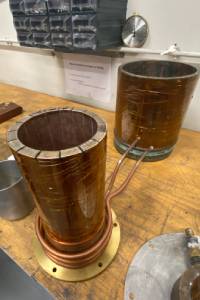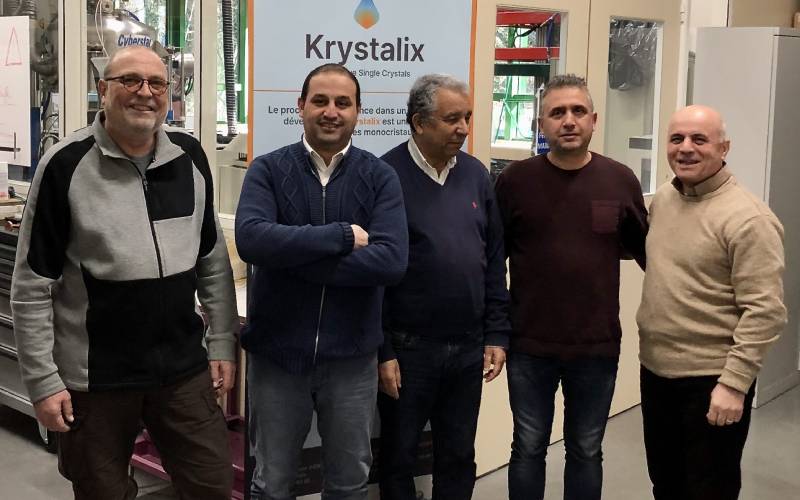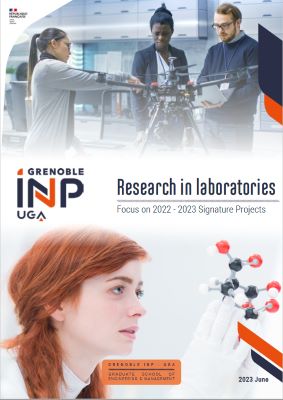Single crystals have many industrial applications. Whether we're talking about silicon, for microelectronics, or other types of materials used for lasers, sensors, or something else entirely, the principle of industrial production remains the same. First, the raw material is melted in a crucible. When it has reached a liquid state, a small ‘seed’ crystal is inserted, which makes it possible to create a solid crystal in a controlled way with a single crystal structure, in which all the atoms are perfectly in place. There are almost zero defects in the structure, giving single crystals exceptional properties.
But this production method raises two issues: firstly, the melting point of the raw material cannot exceed that of the material from which the crucible is made. Secondly, the raw material may be contaminated by residue from the crucible under the effect of the heat. That is why industrial crucibles are made from noble materials such as platinum or iridium, which quintupled in price in 2019.
 A disruptive innovation
A disruptive innovation
To address this exponential rise in prices, Kader Zaidat, researcher at SIMaP and future CEO of Kystalix, has developed a tool using induction with his team. The crucible has electromagnetic fields running through it and is made up of metal bars cooled by water.
"This means that materials can be heated to 3,000 °C, without the temperature of the crucible rising above 50°C,” says the Grenoble INP - UGA researcher.
“Not only does this solve the issue of the crucible material polluting the crystal, as the crucible does not get hot, but the process heats the material directly, which significantly reduces the total energy consumption for this process.”
To counter the turbulence from the electromagnetic stirring of the liquid, which may prevent the single crystal from forming correctly as it needs a very stable bath, scientists placed magnets inside the crucible, creating a sort of magnetic braking system.
“This means that we stop the flow at the source.”
The highly innovative crucible has already set a world record, producing a silicon single crystal, 2 inches in diameter, in a cold crucible. On the basis of this achievement, Kystalix was selected for maturation at technology transfer acceleration company Linksium and awarded funding by the i-Lab 2023 competition. The first round of funding is scheduled for launch within the next two years, to fund the construction of a production site.
*CNRS, UGA, Grenoble INP – UGA




 A disruptive innovation
A disruptive innovation